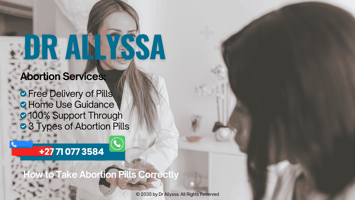Navigating your post-abortion recovery can be challenging, especially when it comes to resuming...
Post-Abortion Recovery: Tips for a Smooth Transition

Navigating the emotional and physical landscape post-abortion can be challenging, but with the right guidance, a smooth transition is possible.
Understanding the Immediate Aftermath
The immediate aftermath of an abortion can vary significantly depending on the type of procedure—medical or surgical—and the individual's unique health condition. Typically, you may experience cramping and bleeding similar to a heavy menstrual period. These symptoms are a normal part of the body's recovery process and usually subside within a few days.
It is essential to rest and allow your body some time to heal. Avoid strenuous activities and take it easy for the first 24 to 48 hours. Emotional responses can also range widely; feelings of relief, sadness, or a mix of emotions are all valid. Understanding these aspects can help you prepare mentally and physically for the days immediately following the procedure.
Physical Care: What to Expect and How to Heal
Physical care post-abortion focuses on managing symptoms and preventing infection. Over-the-counter pain relievers like ibuprofen can help alleviate cramping. Monitor your bleeding; heavy bleeding beyond the first few days should prompt a call to your healthcare provider.
Avoid using tampons and engaging in sexual intercourse for at least two weeks to reduce the risk of infection. Make sure to follow any specific instructions given by your healthcare provider, including taking prescribed antibiotics if necessary. Proper hygiene and rest are crucial to facilitate your body's healing process.
Emotional Well-being: Coping Strategies and Support
Emotional recovery is just as important as physical healing. It's normal to experience a range of emotions, from relief to sadness. Don't hesitate to seek support from trusted friends, family, or professional counselors. Allyssa Women’s Clinic offers post-termination counseling to help you navigate these complex emotions.
Coping strategies such as journaling, joining a support group, or practicing mindfulness and relaxation techniques can also be beneficial. Remember, it's okay to seek help and take the time you need to process your feelings.
Nutrition and Exercise: Supporting Your Body’s Recovery
Proper nutrition plays a vital role in your recovery. Focus on a balanced diet rich in vitamins and minerals to support your body's healing. Hydration is crucial, so make sure to drink plenty of water.
Gradually reintroduce light exercise such as walking, which can help improve your mood and circulation. Avoid intense activities until your healthcare provider gives you the green light. Listen to your body and take things at your own pace.
When to Seek Medical Help: Recognizing Warning Signs
Knowing when to seek medical help is crucial for a smooth recovery. Contact your healthcare provider if you experience severe abdominal pain, heavy bleeding (soaking more than two pads per hour), high fever, or foul-smelling discharge. These could be signs of an infection or other complications requiring immediate attention.
Regular follow-up appointments are vital to ensure your recovery is on track. Don’t hesitate to reach out to Allyssa Women’s Clinic if you have any concerns or questions during your recovery period.
.png?width=200&height=65&name=Untitled%20design%20(68).png)

.png?height=200&name=Termination%20Pills%20that%20Work%20Effectively.%20(1).png)
